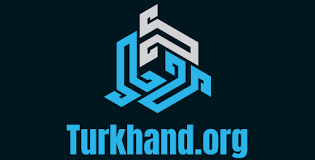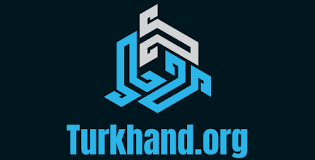The global halal beauty market continues its remarkable expansion, reaching an estimated value of $105 billion in 2025. As Muslim consumers increasingly seek products aligning with their religious values, beauty brands must adapt to meet these requirements. Halal cosmetics certification represents a crucial step for companies aiming to tap into this lucrative market segment.
Halal-compliant cosmetics must be free from ingredients derived from pork, carnivorous animals, dead animals, and alcohol. Additionally, the manufacturing process must prevent cross-contamination with non-halal substances. These stringent requirements ensure products meet Islamic dietary laws and ethical standards, making certification essential for market credibility.
The Growing Demand for Certified Halal Beauty Products
The beauty industry has witnessed unprecedented growth in halal product demand, particularly in regions with significant Muslim populations. Countries across Asia, the Middle East, North America, and Europe show increasing interest in certified halal cosmetics. This trend extends beyond Muslim consumers, as many non-Muslim buyers appreciate the ethical production standards and natural ingredients typically associated with halal products.
Market research indicates that 84% of Muslim consumers actively seek halal certification for cosmetics when making purchasing decisions. This preference drives major beauty brands to reconsider their formulations and seek proper certification to capture this expanding market share. The trend particularly resonates with younger consumers who prioritize ethical consumption and transparency in product ingredients.
Understanding the Certification Process
Obtaining halal certification in cosmetics involves multiple stages of evaluation and compliance verification. The process begins with a thorough assessment of all ingredients, including active compounds, preservatives, colorants, and fragrances. Each component must trace back to permissible sources according to Islamic law.
Manufacturing facilities undergo rigorous inspections to ensure proper segregation of halal and non-halal products. Equipment must be thoroughly cleaned according to Islamic purification methods if previously used for non-compliant products. Documentation requirements include detailed ingredient lists, supplier certificates, and standard operating procedures that demonstrate ongoing compliance.
The certification timeline typically ranges from three to six months, depending on product complexity and facility readiness. Companies must maintain detailed records and undergo regular audits to retain their certification status. This ongoing commitment ensures consistent compliance with halal standards throughout the product lifecycle.
Types of Halal Beauty Certifications Available
Various halal cosmetics certifications exist globally, each with specific requirements and recognition levels. Regional certification bodies often have mutual recognition agreements, facilitating international trade and market access. Major certification types include product-specific certificates, facility certifications, and comprehensive company-wide halal compliance programs.
Product certification focuses on individual items or product lines, making it suitable for brands testing market response. Facility certification covers entire manufacturing plants, ensuring all products produced meet halal standards. Company-wide certification represents the highest commitment level, covering all aspects of business operations from sourcing to distribution.
Choosing the Right Certification Partner
Selecting an appropriate Halal Certification Agency requires careful consideration of several factors. Accreditation status stands as the primary criterion, as recognized agencies provide certificates accepted across multiple markets. The agency should possess expertise in cosmetic formulations and understanding of international halal standards.
Experience in the beauty industry ensures efficient processing and relevant guidance throughout certification. Agencies should offer comprehensive support services, including ingredient verification, facility preparation assistance, and staff training programs. Geographic coverage and mutual recognition agreements determine market access potential for certified products.
Transparency in fee structures and certification processes helps companies budget effectively and plan certification timelines. Regular communication and responsive customer service facilitate smooth certification experiences and ongoing compliance maintenance.
Working with a Professional Certification Company
Partnering with an established halal certification company streamlines the certification journey significantly. These organizations provide expert guidance through complex regulatory requirements and help identify potential compliance issues early in the process. Professional certifiers maintain updated databases of halal-approved ingredients and suppliers, accelerating ingredient verification.
Technical expertise in cosmetic chemistry enables accurate assessment of formulation compliance. Many certification companies offer reformulation assistance, helping brands modify existing products to meet halal requirements without compromising quality or efficacy. Training programs educate staff on halal principles and compliance maintenance, ensuring long-term certification success.
Halal Certification Requirements in the United States
The process of obtaining halal certification in usa follows specific guidelines established by recognized American Islamic organizations. The United States lacks federal regulation for halal claims, making third-party certification crucial for consumer trust. Major certification bodies operating in America maintain strict standards aligned with international halal requirements.
American manufacturers must comply with both FDA cosmetic regulations and halal standards simultaneously. This dual compliance requires careful ingredient selection and thorough documentation. The U.S. market shows strong growth potential, with Muslim consumers representing a $170 billion purchasing power in 2025.
Professional Certification Services and Support
Comprehensive halal certification services extend beyond initial certification to include ongoing compliance support. These services encompass ingredient sourcing assistance, helping companies identify reliable halal-compliant suppliers. Regular training updates keep staff informed about evolving halal standards and best practices.
Marketing support helps brands effectively communicate their halal status to target audiences. Many service providers offer logo usage rights and listing in halal product directories. Technical assistance for product development ensures new launches maintain halal compliance from conception.
Annual recertification processes benefit from established service provider relationships. Continuous monitoring and updates regarding regulatory changes protect certification status. Emergency support for compliance issues prevents costly certification suspensions.
Conclusion
Halal cosmetics certification opens significant market opportunities for beauty brands willing to meet strict compliance standards. Success requires partnering with reputable certification agencies and maintaining ongoing commitment to halal principles. As consumer demand continues growing, certified brands position themselves advantageously in this expanding market segment. The investment in proper certification yields returns through increased market access, enhanced brand reputation, and loyal customer relationships among conscientious consumers seeking ethically produced beauty products.



